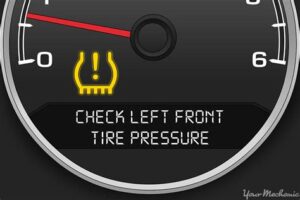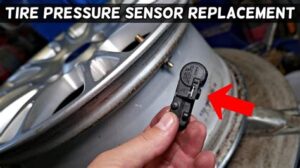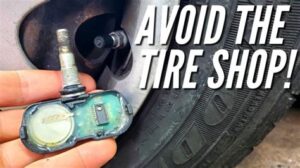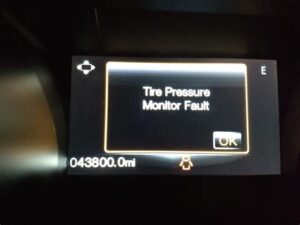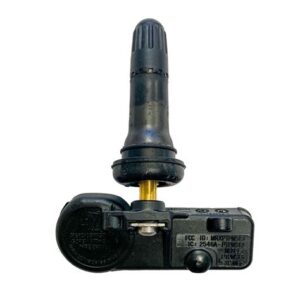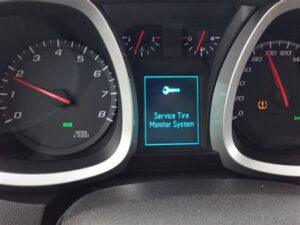Explore tire pressure sensors, their importance, common issues, maintenance tips, and the benefits of upgrading to ensure optimal vehicle safety and performance.Maintaining the optimal performance of your Buick involves more than just regular oil changes and tune-ups; it also includes keeping an eye on your tire pressure sensor. This small yet crucial component plays a significant role in ensuring your driving safety and overall vehicle efficiency. In this blog post, we will delve into the intricacies of the tire pressure sensor, highlighting its importance and the potential issues that can arise if it malfunctions. We will also provide practical tips for maintaining these sensors and discuss the added benefits of upgrading to newer models. Understanding and caring for your Buick’s tire pressure sensors can not only enhance your driving experience but also prolong the lifespan of your tires. Join us as we explore the essential aspects of tire pressure monitoring in your vehicle.
Understanding the Tire Pressure Sensor
The tire pressure sensor is an essential component of modern vehicles, providing critical information about the air pressure in each tire. This sensor plays a vital role in ensuring both safety and performance on the road.
These sensors are typically part of a system known as the Tire Pressure Monitoring System (TPMS), which alerts the driver when tire pressure falls below the recommended levels. Proper tire pressure not only enhances vehicle safety but also improves fuel efficiency and prolongs tire life.
How It Works
The tire pressure sensors are usually located inside the tire, attached to the valve stem. They continuously monitor the pressure and transmit this data to the vehicle’s onboard computer. When the pressure in any tire drops significantly, the system activates a warning light on the dashboard, prompting the driver to take action.
Types of Tire Pressure Sensors
- Direct TPMS: Measures air pressure directly using sensors in each tire.
- Indirect TPMS: Estimates tire pressure based on the rotation speed of the wheels, using data from the ABS system.
Importance of Tire Pressure Monitoring
Understanding how the tire pressure sensor functions is crucial for vehicle maintenance and safety. Here are some key reasons why:
- Safety: Properly inflated tires provide better traction, stability, and handling.
- Fuel Efficiency: Maintaining correct tire pressure can improve fuel economy, saving money over time.
- Tire Longevity: Keeping tires at the right pressure prevents uneven wear and extends tire life.
Under-inflated tires can lead to blowouts, decreased performance, and higher fuel consumption.
In summary, understanding your vehicle’s tire pressure sensor and its importance can help ensure safety, efficiency, and performance on the road.
Importance of Proper Tire Pressure
Maintaining the proper tire pressure is crucial for the safety, performance, and longevity of your vehicle. Many drivers often overlook this simple yet vital aspect, leading to various problems that can affect their driving experience. Here are some key reasons why proper tire pressure is so important:
- Safety: Under-inflated or over-inflated tires can lead to reduced traction, longer stopping distances, and an increased risk of tire blowouts. By ensuring that your tire pressure is at the recommended level, you greatly enhance your safety on the road.
- Fuel Efficiency: Tires that are not properly inflated can cause the engine to work harder, which in turn increases fuel consumption. According to the U.S. Department of Energy, keeping your tires inflated to the proper pressure can improve your gas mileage by up to 3%.
- Tire Longevity: Proper tire pressure helps to distribute the weight of the vehicle evenly across the tread. This even distribution can lead to less wear and tear on the tires, ultimately extending their lifespan and saving you money in the long run.
- Handling and Performance: The right tire pressure ensures optimal handling and performance of your vehicle. When tire pressure is within the manufacturer’s specifications, you’ll experience better steering response and overall vehicle stability.
- Environmental Impact: Fuel efficiency improvements resulting from proper tire pressure not only benefit your wallet but also have a positive impact on the environment. Reducing your fuel consumption leads to lower greenhouse gas emissions.
It’s essential to check your tire pressure regularly, especially before long trips or significant temperature changes. Remember, proper tire pressure is not just a recommendation; it is a necessity for anyone looking to maintain a safe and efficient vehicle.
Common Issues with Tire Pressure Sensors
Tire Pressure Monitoring Systems (TPMS) are crucial for maintaining the safety and efficiency of your vehicle. However, like any technology, they are not without their issues. Here are some of the most common problems associated with tire pressure sensors:
| Issue | Description |
|---|---|
| Incorrect Readings | Sometimes, the sensors can provide inaccurate readings, causing drivers to inflate or deflate their tires improperly. |
| Battery Failure | The batteries within tire pressure sensors typically last anywhere from 5 to 10 years. When they fail, the sensor will not function, leading to a warning light on your dashboard. |
| Sensor Damage | Physical damage from road hazards or improper mounting can cause the sensor to break, resulting in a loss of signal and functionality. |
| Interference | Interference from other electronic devices or metal objects nearby can disrupt the sensor’s communication with the vehicle’s onboard computer. |
| Seasonal Changes | Temperature fluctuations can lead to changes in tire pressure. If the sensors are not calibrated accurately, they may trigger false alerts. |
By being aware of these common issues, drivers can take proactive steps to ensure their TPMS is functioning properly. Regular maintenance and inspection can help prevent potential problems that could affect both the safety and performance of your Buick.
How to Maintain Tire Pressure Sensors
Maintaining your tire pressure sensors is essential for ensuring the safety and performance of your vehicle. Proper upkeep not only helps to prevent potential issues but also extends the lifespan of the sensors. Below are some tips and guidelines on how to maintain your tire pressure sensors effectively.
1. Regularly Check Tire Pressure
Checking the tire pressure regularly is crucial. Ideally, you should check it at least once a month and before long trips. Use a reliable tire pressure gauge to ensure accurate readings.
2. Monitor for Warning Lights
If the tire pressure monitoring system (TPMS) warning light illuminates on your dashboard, don’t ignore it. This may indicate low tire pressure or a malfunctioning sensor. Address these issues promptly to avoid further complications.
3. Keep Tires Properly Inflated
Maintaining the correct tire inflation is vital for the functionality of tire pressure sensors. Over- or under-inflated tires can lead to inaccurate readings and may damage the sensors.
4. Regular Calibration
It’s important to calibrate your tire pressure sensors periodically. Follow the manufacturer’s guidelines for calibration, which will usually be found in your vehicle’s owner’s manual.
5. Check for Damage
Visual inspections can detect physical damage to tire pressure sensors. Look for any signs of wear, corrosion, or loose connections. If you notice any damage, seek professional assistance for repairs or replacements.
6. Rotate Tires Regularly
Regularly rotating your tires can help evenly distribute wear and tear. This practice can also help in keeping the tire pressure sensors functioning properly as they will be used in various positions and conditions.
7. Replace Old Sensors
As a general rule of thumb, tire pressure sensors need to be replaced every 5-10 years, depending on wear and usage. Keep an eye on their performance and replace them accordingly.
8. Seek Professional Help
If you’re unsure about the status of your tire pressure sensors, it’s best to consult with a professional mechanic who has experience with Buick tire pressure sensors. They can provide a thorough inspection and maintenance check.
By following these maintenance tips, you can ensure the reliability of your tire pressure sensors and enhance the overall safety of your driving experience.
Benefits of Upgrading to Newer Sensors
Upgrading to newer tire pressure sensors can bring several advantages that not only enhance vehicle performance but also contribute to overall safety and efficiency. Here are some key benefits of making the switch:
- Improved Accuracy: Newer tire pressure sensors are designed with advanced technology that offers enhanced accuracy in monitoring tire pressure levels. This means you can trust the readings provided, helping you maintain optimal tire pressure at all times.
- Faster Response Time: Upgraded sensors generally provide quicker feedback on tire pressure changes. This immediate response can alert you to issues before they become severe, potentially preventing accidents.
- Extended Lifespan: New models often come with improved durability and resistance to wear and tear. This can result in a longer lifespan, reducing the frequency of replacements and repairs.
- Better Integration: Modern sensors are designed to seamlessly integrate with current vehicle technology, including smart displays and dashboard warnings. This allows for a more user-friendly experience and better overall vehicle management.
- Enhanced Fuel Efficiency: Keeping your tires at the proper pressure can improve your vehicle’s fuel efficiency. By upgrading to newer sensors, you can ensure that your tires are always correctly inflated, which positively impacts gas mileage.
Moreover, investing in newer tire pressure sensors may also increase the resale value of your vehicle. Prospective buyers often look for vehicles that are equipped with the latest technology, making your car more attractive in the market.
In conclusion, upgrading to newer tire pressure sensors is a worthwhile investment that not only boosts safety but also contributes to better vehicle performance and efficiency.
Frequently Asked Questions
What is a tire pressure sensor and why is it important?
A tire pressure sensor monitors the tire’s air pressure, providing real-time data to help maintain optimal tire performance and safety. Proper tire pressure enhances fuel efficiency, prolongs tire life, and improves handling.
How can I tell if my Buick tire pressure sensor is malfunctioning?
Signs of a malfunctioning tire pressure sensor include a warning light on the dashboard, fluctuating tire pressure readings, or inaccurate pressure notifications. If these occur, it’s advisable to have the system checked.
What should I do if my Buick’s tire pressure sensor light comes on?
When the tire pressure sensor light illuminates, immediately check the tire pressure using a gauge. If the pressure is low, inflate the tires to the recommended level. If the light remains on after adjustments, consult a professional.
How often should I replace the tire pressure sensors on my Buick?
Tire pressure sensors typically last between 5 to 10 years, but it’s recommended to check them whenever you get new tires. Additionally, if you notice any issues with reading the tire pressure, they may need replacing sooner.
Can I reset the tire pressure sensor on my Buick myself?
Yes, you can reset the tire pressure sensor in most Buicks by following specific instructions in your owner’s manual. This usually involves adjusting the tire pressure and using the reset button, often located beneath the steering wheel.
What are the risks of driving with a faulty tire pressure sensor?
Driving with a faulty tire pressure sensor can lead to inadequate tire pressure, increasing the risk of tire blowouts, poor fuel efficiency, and compromised handling, which can ultimately lead to accidents.
How can I maintain my Buick’s tire pressure sensors?
To maintain your tire pressure sensors, regularly check your tire pressure, avoid driving on under-inflated tires, and have your sensors inspected during routine maintenance to ensure they are functioning properly.
